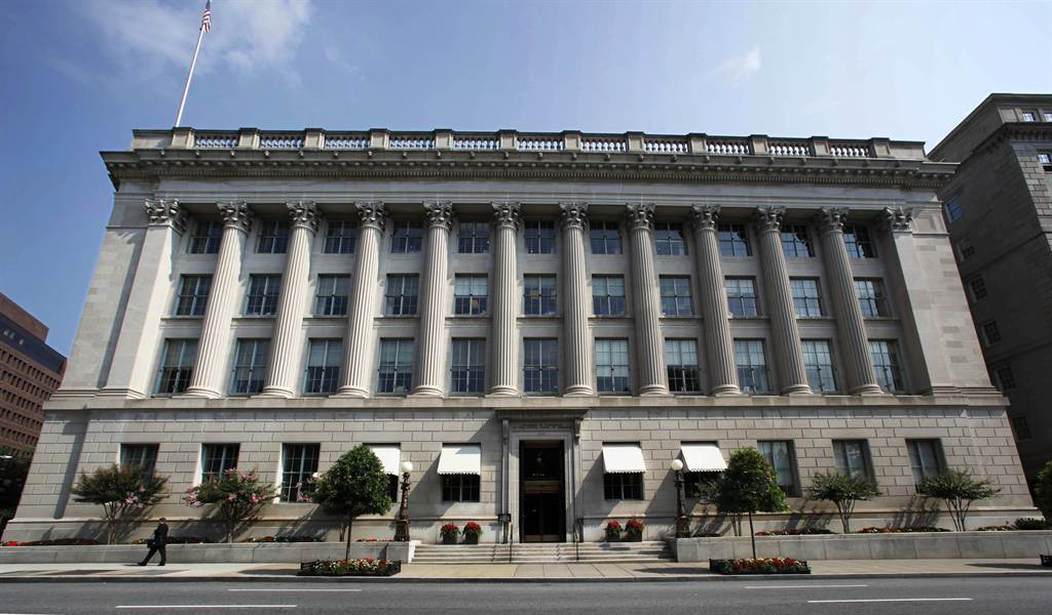After being accused by Republicans and Democrats alike of corporate cronyism and ruining American businesses, the Export-Import Bank of the United States (Ex-Im Bank) is seeking to soften its image and has recently named Charles J. “C.J.” Hall as its executive vice president and chief risk officer. Unfortunately, the newly appointed risk officer will do little to ameliorate Congressional concerns as the Bank has many institutional problems that need to be immediately addressed.
The Ex-Im Bank is a federal agency that was originally established in 1934 under the premise that it would provide loans and other forms of financing to foreign companies seeking to purchase American goods. It was believed that this would help promote international trade, but what policymakers did not anticipate was the damage it would inflict on American taxpayers and employers. Since the loans are traditionally only available to foreign companies, domestic companies seeking to purchase American goods are unable to secure the sub-market price loans and preferable terms that Ex-Im provides. This translates into a distinct advantage for foreign competitors over their American counterparts.
The greatest benefactors of these favorable financial guarantees have been foreign airline carriers. The Boeing Company receives the largest portion of Ex-Im’s loan guarantees, taking 82 percent of its total portfolio in 2012, meaning that foreign airlines often purchase Boeing aircraft at a better rate than American carriers. Obviously, this has economic implications for the U.S. airline industry with The Wall Street Journal recently reporting that the Ex-Im Bank has wreaked havoc on domestic carriers causing them to shed as many as 7,500 jobs and lose $684 million.
The Ex-Im Bank’s dangerous influence is not just limited to the American airline industry, but also extends to nearly every business sector it touches. And since the Bank is a federal agency, it means that the government is effectively picking winners and losers rather than allowing the free market to prevail. The most recent loser was the American mining industry, which will see hundreds of millions of dollars of Ex-Im financial guarantees go to one of its top competitors – Roy Hill – an Australian mining company owned by one of that nation’s richest people. Democratic Senators Amy Klobuchar (Minn.), Al Franken (Minn.), Carl Levin (Mich.) and Debbie Stabenow (Mich.) recently wrote a letter to Ex-Im Back Chairman Fred Hochberg stating the deal could “substantially injure American iron ore and steel producers and their employees.”
Recommended
Simply put, Congress has taken notice of Ex-Im’s malfeasance and the Bank has gone into damage control by stepping up its public relations efforts, including issuing a press release boasting about Mr. Hall as the new “chief risk office.” Interestingly enough, Hall also has a less a somewhat dubious record. He was previously the chief executive officer of a corporation named Envirotrade, a company which he himself said had a business model that “remains to be proven.” If that wasn’t enough, then consider the fact that Envirotrade’s London Arm is insolvent and owes £800,000 to its parent company in Mauritius. Even more worrisome is that the European Commission suspended payment on an Envirotrade grant due to unsubstantiated claims. It is disconcerting that the Bank would hire someone charged with overseeing risk assessment that apparently had such a great degree of difficulty managing his own company. The difference with the Ex-Im Bank is that Hall will now be operating with funds that are guaranteed by American taxpayers.
What the new chief risk officer is unlikely to change is that the Ex-Im Bank largely benefits one single American company at the expense of an entire U.S. industry. This is exactly why Congress needs to go further than did when it reauthorized the Bank’s charter with reforms in 2012 and revoke it completely in 2014. For far too long the Ex-Im Bank has undermined domestic employers and killed our jobs. No matter how many risk officers the Ex-Im appoints, our economy cannot afford to continue to sustain the damage the Bank is causing.























Join the conversation as a VIP Member